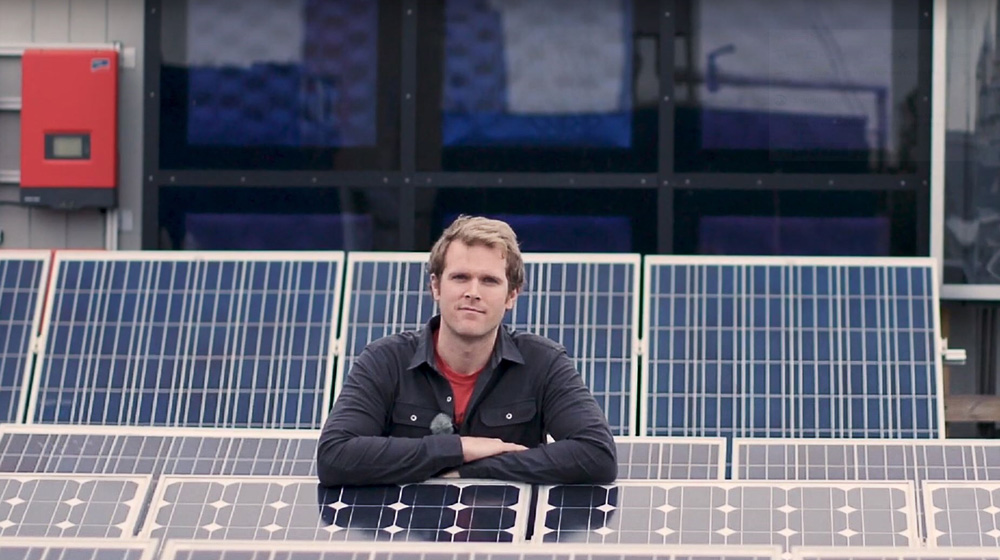Energy research helps boost heat pumps in the U.S.

Researcher Nelson Sommerfeldt is spreading the impact of Swedish energy research. With the U.S. University Michigan Tech, KTH now helps decarbonize home heating on a new continent.
Over 90% of Americans use natural gas or propane for heating and cooling, and electrification of the sector is a hot topic. On another continent, Sweden has long been a leader in heat pumps, thanks largely to research at the Division of Applied Thermodynamics and Refrigeration at the Energy Department, KTH. A collaboration with the U.S. University Michigan Tech is helping analysts and policymakers decarbonize home heating in the U.S.
KTH Researcher Nelson Sommerfeldt and Michigan Tech Professor Joshua Pearce* have made a case for solar photovoltaics (PV) combined with heat pumps in a joint effort. Heat pumps combined with solar PV (photovoltaics) reduce greenhouse gas emissions by over 50% in residential buildings by replacing propane or natural gas heaters at a lower lifecycle cost. And the cooperation has not been unnoticed.
“When publishing our work, the results were picked up by local news and caught the attention of a regional energy consultancy working on industry tools and policy recommendations to encourage heat pump adoption,” explains Nelson Sommerfeldt at the Department of Energy Technology.
“Me being a small-town kid working in exotic Stockholm also helps get attention, particularly since many people see Sweden as a leader in energy sustainability,” says Nelson. He originates from the U.S. state of Michigan, from the same town where Michigan Tech is located.
Sommerfeldt also had the opportunity to testify in the Michigan state House of Representatives in support of a proposed law to remove limitations for solar PV in households. As a compromise for imposing net metering, the utilities are only required to connect PV systems for 1% percent of their customers. The new bill would remove net metering in favor of a self-consumption scheme, similar to Sweden’s, while also enabling all electricity customers to connect PV systems. The electric utilities prefer to own the PV systems themselves, and therefore lobby regulators to prevent rooftop systems. Unfortunately, the bill has not yet been voted out of the house energy committee, so the limit remains in place.
“Even though the bill is still stuck in committee, the pressure is growing as more and more people want solar on their roofs,” Nelson says.
This is especially the case when combining their solar with heat pumps. Heating electrification is a hot topic in the U.S. right now due to a renewed push for climate action. And the switch to solar heat pumps (which also get a lot of summertime use for cooling) makes a lot of economic and environmental sense for homeowners.
“It is quite exciting to see your research immediately impact industry and government,” says Nelson. “Now, let’s hope our contribution to the debate can help develop alternatives to fossil fuels.”
*Joshua Pearce is now at the Western University in Canada
